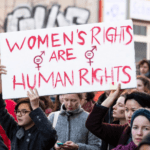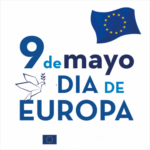Human Rights Day is celebrated every December 10, the day on which, in 1948, the United Nations General Assembly adopted the Universal Declaration of Human Rights (UDHR).
The Universal Declaration of Human Rights is a historic document that proclaims the inalienable rights to which every person is entitled as a human being, regardless of race, color, religion, sex, language, political or other opinion, national or social origin, property, birth or other status. It is available in more than 500 languages and is the most translated document in the world.
Promotion and protection of human rights in the EU
The European Union’s human rights policy and action has two main strands. One is to protect the fundamental human rights of EU citizens and the other is to promote human rights worldwide.
The Charter of Fundamental Rights of the European Union guarantees the rights of EU citizens. It sets out fundamental rights that are binding on EU institutions and bodies and also on national governments when they are implementing EU law.
- Carta de los Derechos Fundamentales de la Unión Europea
- Derechos fundamentales de los ciudadanos de la UE
The European Union is based on a strong commitment to promote and protect human rights, democracy and the rule of law throughout the world. Human rights are at the heart of the EU’s relations with other countries and regions.
With its human rights policy, the EU:
- promotes the rights of women, children, minorities and displaced persons
- opposes the death penalty, torture, trafficking in human beings and discrimination
- upholds civil, political, economic, social and cultural rights
- upholds human rights through close and active collaboration with partner countries,international and regional organizations and groups and associations at all levels of society
- includes human rights clauses in all trade or cooperation agreements with non-EU countries.
Statement by the High Representative on behalf of the European Union
10 December is Human Rights Day which marks the anniversary of the adoption of the Universal Declaration of Human Rights in 1948.
This day serves as an opportunity to recall that human rights are universal, indivisible, inalienable, interdependent and interrelated. Whilst their promotion and protection is an imperative to uphold human dignity, the genuine respect and fulfilment of human rights is also indispensable for peace, democracy and sustainable development.
Yet, this year we have witnessed particularly serious attacks on human rights, on a massive scale, ranging from Russia’s illegal, unprovoked and unjustified war of aggression against Ukraine that has caused and continues to cause inconceivable human suffering, to the grave human rights violations and abuses in Afghanistan, Belarus, Ethiopia, and Myanmar/Burma. The EU has also expressed deep concern about the further deteriorating human rights situation in Russia and addressed the human rights situation in China as well as the on-going violent crackdown on peaceful protesters in Iran. Women and girls have been particularly targeted by repression and restrictive policies in many countries, and have suffered disproportionately from human rights abuses in conflict settings. Freedom of assembly, freedom of expression online and offline, freedom of the media remain under serious threat. This adds to an ever-growing list of violations across the world that remain the focus of our attention.
The EU will continue to monitor, raise attention to and take decisive action in international fora to combat and prevent human rights violations and abuses, and to support international initiatives to hold all perpetrators to account.
Under the Action Plan on Human Rights and Democracy 2020-2024, the EU is making use of its wide range of instruments to uphold and advance human rights around the world. Among those are bilateral and multilateral cooperation in human rights, the imposition of sanctions on persons and entities involved in serious violations and abuses of human rights, as well as program and project support under the Thematic Programme on Human Rights and Democracy 2021-2027.
The EU stands by and supports human rights defenders and civil society organizations around the world. In the same vein, the 24th EU-NGO Human Rights Forum this year will again serve as a platform to engage with human rights defenders across the globe. We will discuss possibilities and best practices of putting an end to impunity and ensuring access to justice and accountability for human rights violations and abuses.
On Human Rights Day, we commit to re-double our efforts to stand with and speak out for the oppressed and those under threat, wherever they may live.
More information:






Leave a Reply